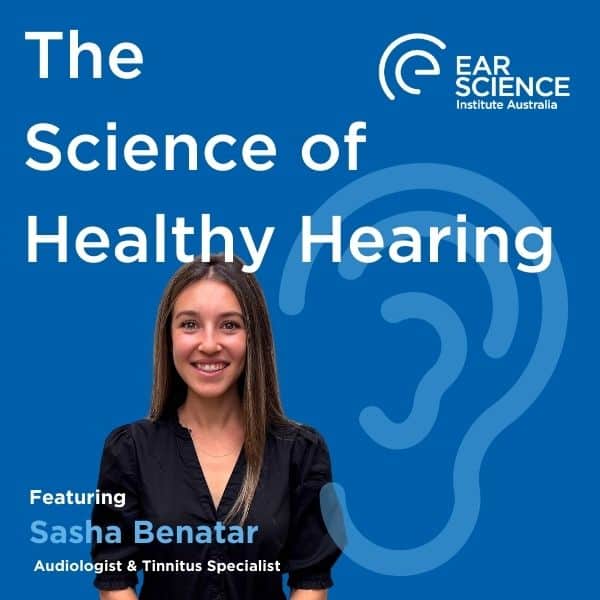Discover how the LIVE WELL Range from Lions Hearing Clinic can improve your health beyond your hearing
Do you need extra motivation to live your best life?
Research has shown that hearing difficulties may reduce your quality of life through social isolation, feelings of loneliness, and a loss of your independence.
Many of us don’t have a personal trainer to encourage us to get up off the couch to get active, but our LIVE WELL range of hearing devices makes it easy to build more activity into your day. These new devices will encourage you to get out for a bike ride, take the stairs instead of the lift, go for a swim at the beach and take a walk along the coast before your morning coffee.
The new range at Lions Hearing Clinic will give you the confidence and motivation to hear well and live your best life.

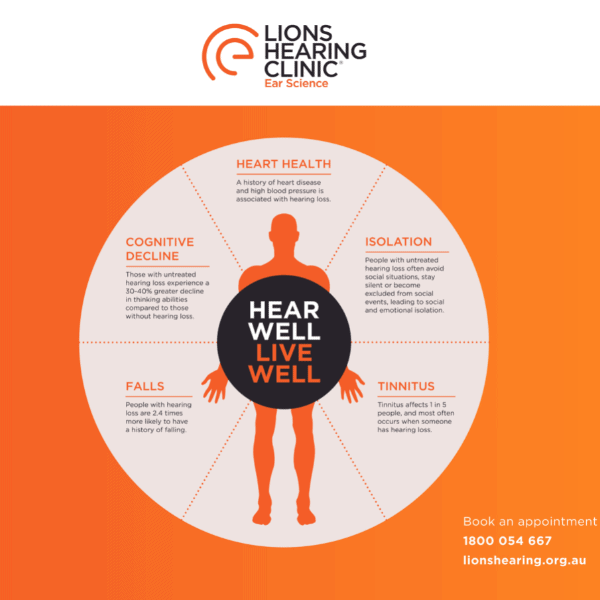
The hidden risks associated with hearing loss
By itself, untreated hearing loss is usually not life-threatening, but it has been associated with many health conditions that can be life-threatening. The Busselton Healthy Ageing Study has shown a significant association between hearing loss and many other chronic health conditions, including cardiovascular disease, diabetes and respiratory disease.
Motivation & safety to live your best life
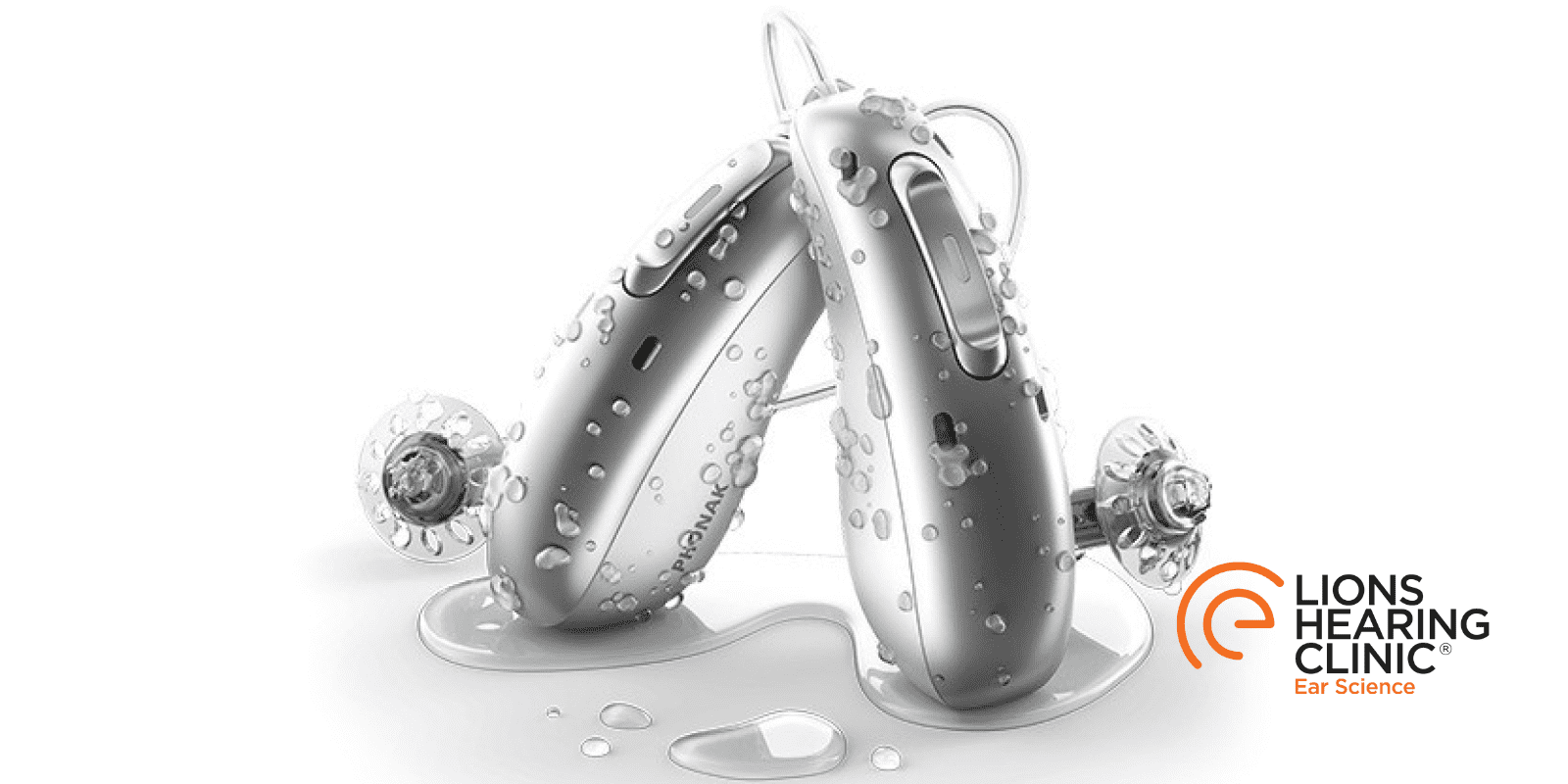
Phonak Audéo Life
Waterproof
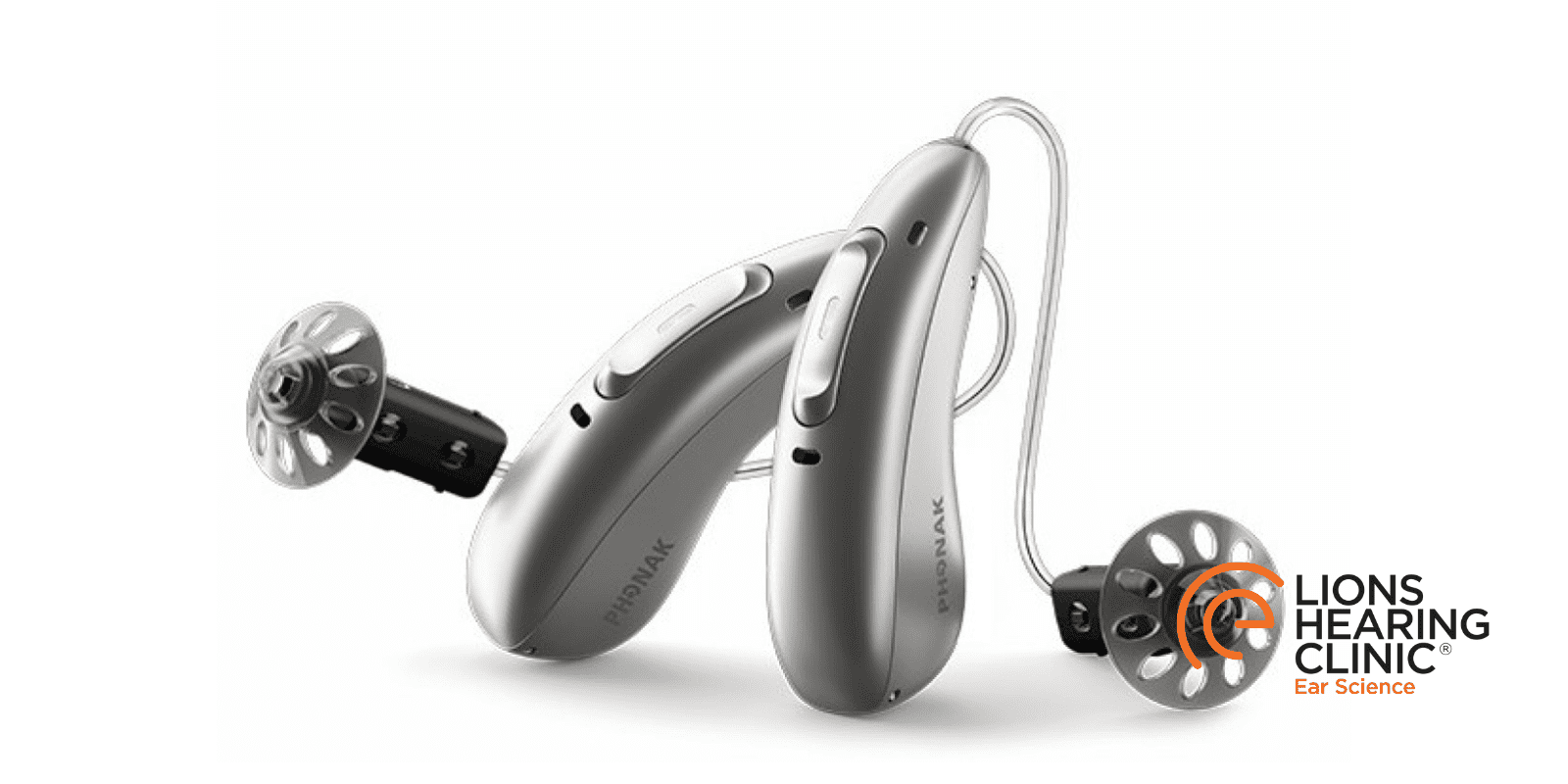
Phonak Audéo Fit
Heart rate monitor
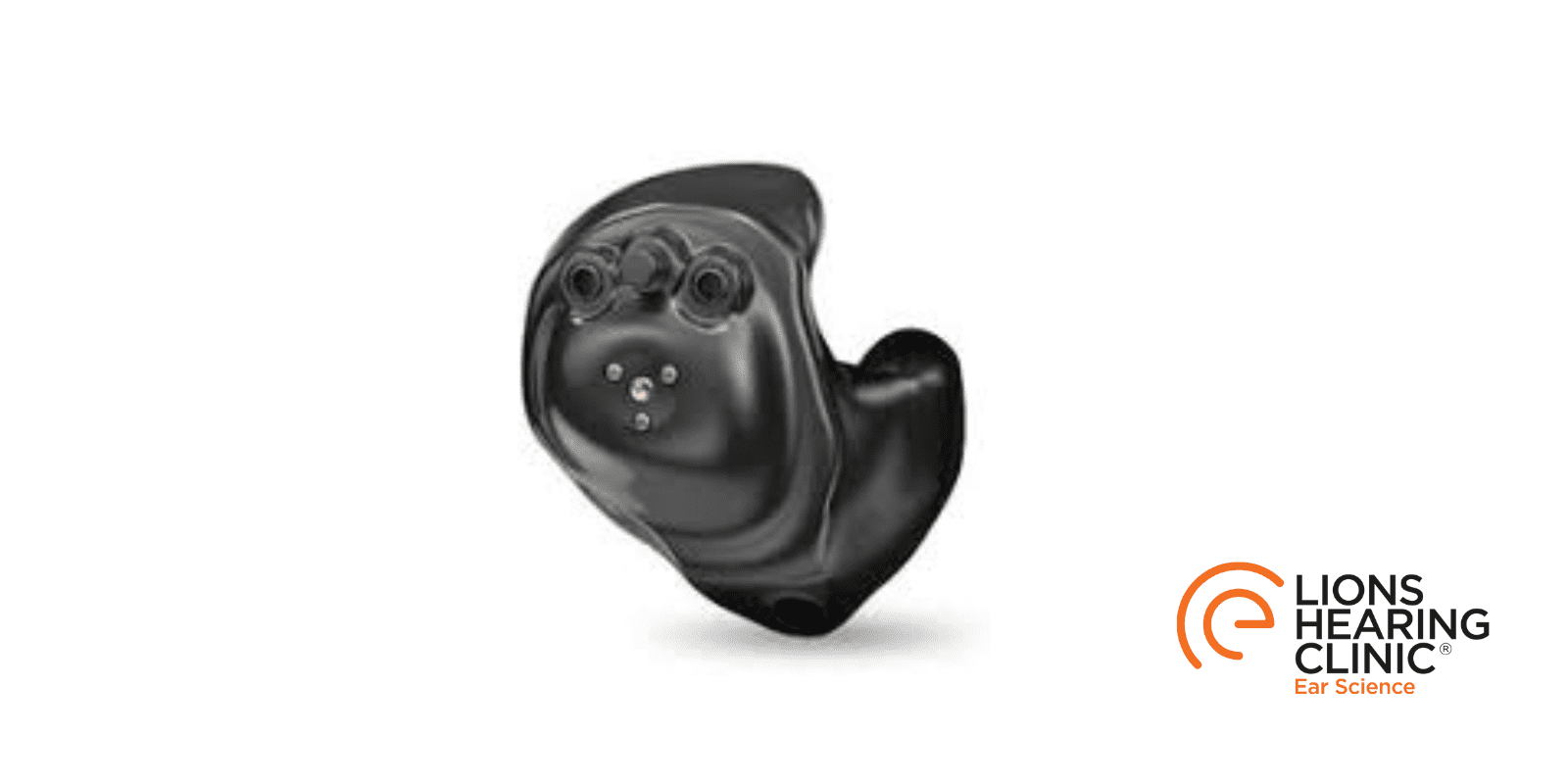
Starkey Evolv AI
Falls monitor

Fit hearing aids with a heart-rate sensor
Hearing aids are often stigmatised as a device for the old or infirm. But the latest hearing aids are anything but old–fashioned: they’re teched out with AI, fitness trackers, streaming capability, and more. Now Phonak is out with the first commercially available hearing aid with a heart-rate sensor.
Audéo Fit’s receiver-in-canal device tracks fitness data, such as steps, activity level, and distance walked, while also monitoring the wearer’s heart rate when paired with the MyPhonak app. Currently available at Lions Hearing Clinic, Audéo Fit pairs with up to eight Bluetooth devices, including smartphones and TVs.
Original source: TIME
If you’re having trouble hearing, find out if the LIVE WELL Range suits your hearing and lifestyle needs
WAs most trusted hearing provider, with hearing care led by science.
As part of Ear Science Institute Australia, Western Australia’s own independent medical research institute, Lions Hearing Clinic is dedicated to ear and hearing care. We are the leading hearing care providers with confident, qualified clinicians ready to care for all of your hearing needs.
From hearing aids to hearing implants, tinnitus and balance services, Lion’s Hearing Clinic provides ongoing support and treatment, commission-free, whilst utilising the world’s leading manufacturer’s devices.
References
Falls
Hearing loss and falls: A systematic review and meta‐analysis. The Laryngoscope. 2016;126(11):2587-2596.
https://pubmed.ncbi.nlm.nih.gov/27010669/
Jiam NT-L et al. Hearing loss and falls: A systematic review and meta‐analysis. The Laryngoscope. 2016;126(11):2587-2596.
Heart Health
Tan HE, et al. Associations between cardiovascular disease and its risk factors with hearing loss—A cross-sectional analysis. Clinical Otolaryngology. 2018; 43(1):172-181.
https://pubmed.ncbi.nlm.nih.gov/28703883/
Miyata J, Umesawa M, Yoshioka T. et al. Association between high systolic blood pressure and objective hearing impairment among Japanese adults: a facility-based retrospective cohort study. Hypertension Research 45: 155–161; 2022).
https://www.nature.com/articles/s41440-021-00737-8
Obesity
Hu H, Tomita K, Kuwahara K, et al. Obesity and risk of hearing loss: A prospective cohort study. Clinical Nutrition. 39(3):870-875; 2020.
https://www.sciencedirect.com/science/article/pii/S0261561419301335
Dhanda N, Taheri S. A narrative review of obesity and hearing loss. International Journal of Obesity. 2017;41:1066-1073.
Hu H, Tomita K, Kuwahara K, et al. Obesity and risk of hearing loss: A prospective cohort study. Clinical Nutrition. 39(3):870-875; 2020.
Diabetes
Baiduc RR, Helzner EP. Epidemiology of diabetes and hearing loss. Seminars in Hearing. 40(4):281-291; 2019
Sommer J, et al. A population-based study of the association between dysglycemia and hearing loss in middle age. Diabetic Medicine. 34(5): 683-690, 2017.
Baiduc RR, Helzner EP. Epidemiology of diabetes and hearing loss. Seminars in Hearing. 40(4):281-291; 2019.
Cognitive decline
Lin FR, et al., Hearing Loss and Cognitive Decline in Older Adults. JAMA Internal Medicine. 2013;173(4):293-299.
Tinnitus
Shargorodsky J, et al. Prevalence and Characteristics of Tinnitus among US Adults. The American Journal of Medicine. 2010;123:711-718.
Mental Health
Lawrence BJ, et al. Hearing loss and depression in older adults: A systematic review and meta-analysis. The Gerontologist. 2020;60(3):e137-154.
Eye Health
Vreeken HL et al. Dual sensory loss: A major age‐related increase of comorbid hearing loss and hearing aid ownership in visually impaired adults. Geriatrics and Gerontology International. 2014;14(3):579-576.
Smoking
Cruickshanks KJ, et al. Cigarette Smoking and Hearing Loss: The Epidemiology of Hearing Loss Study. Journal of the American Medical Association. 1998;279(21):1715-1719.
Ototoxicity
Lee CA, et al. Otologic side effects of drugs. The Journal of Laryngology & Otology. 2005;119(4):267-271.
Isolation
Mick P, et al. The Association between Hearing Loss and Social Isolation in Older Adults. Otolaryngology-Head and Neck Surgery. 2014;150(3):378-384.
Osteoporosis
Upalaab S, Rattanawong P, Vutthikraivit W, Sanguankeo A. Significant association between osteoporosis and hearing loss: a systematic review and meta-analysis. Brazilian Journal of Otorhinolaryngology. 2017; 83(6):646-652


